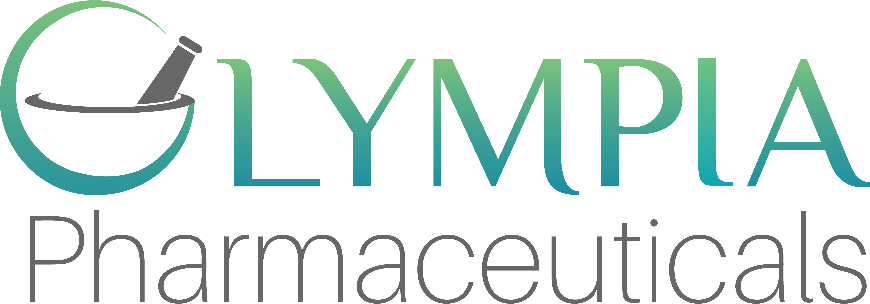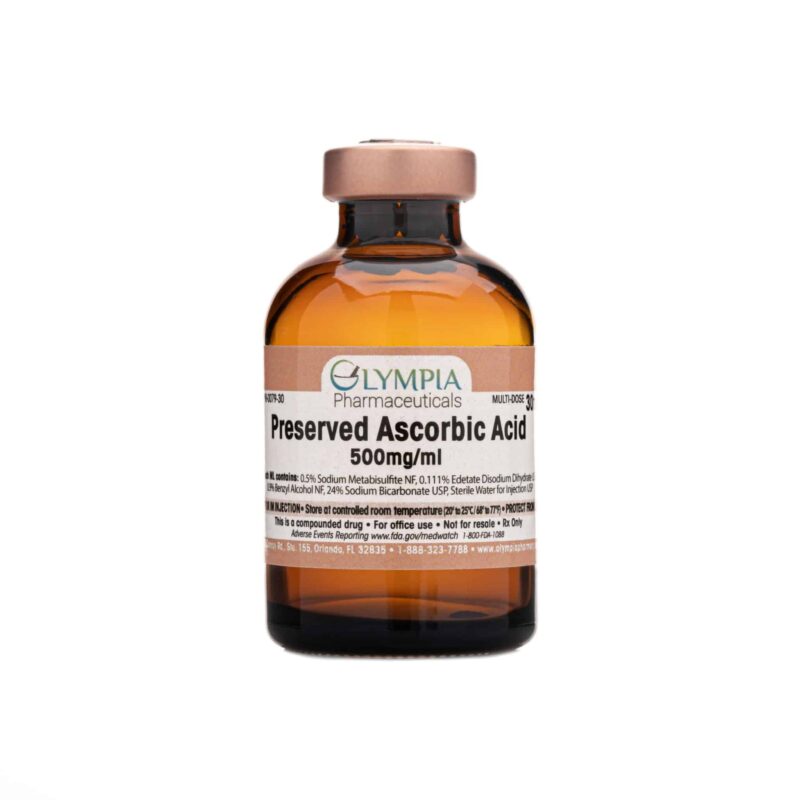Overview
Ascorbic acid, also known as vitamin C, is a water-soluble vitamin that plays a crucial role in various physiological functions within the human body, including maintaining the health of skin, teeth, bone, cartilage and blood vessels. It is an essential nutrient, meaning that it cannot be synthesized by the body and must be obtained through diet or supplements.
Ascorbic acid is found naturally in many fruits and vegetables, especially citrus fruits, kiwi, broccoli, tomatoes, leafy vegetables, potatoes, brussels sprouts, raw bell peppers and strawberries. It is also commonly added to various foods and beverages as a nutritional supplement. Most people get sufficient ascorbic acid through their diet. Others may not be able to absorb enough through diet or ingestible supplements and may suffer from vitamin C deficiency as a result. In these cases, ascorbic injections may be prescribed.
What is Ascorbic Acid (Vitamin C)?
Ascorbic acid is a powerful antioxidant, meaning it helps protect cells from damage caused by free radicals. Free radicals are unstable molecules that can lead to oxidative stress and contribute to various chronic diseases, such as heart disease, cancer, and certain neurological disorders. It also plays a vital role in the synthesis of collagen, a protein found in connective tissues, skin, blood vessels and bones. Collagen is essential for wound healing, maintaining healthy skin, and supporting the structure and integrity of various body tissues. Ascorbic acid aids in the absorption of dietary iron, particularly non-heme iron found in plant-based foods, by converting it into a more absorbable form and increasing its bioavailability. This makes it especially important for individuals following vegetarian or vegan diets to ensure adequate vitamin C intake, as they may have a higher risk of iron deficiency.
Vitamin C is well-known for its role in supporting the immune system. It enhances the production and function of white blood cells, which are crucial for fighting off infections and pathogens. Ascorbic acid also helps boost the activity of other antioxidants in the body, further supporting immune function. It has been associated with several other potential health benefits, including reducing the risk of chronic diseases, such as cardiovascular disease, age-related macular degeneration and certain types of cancer, and may also have anti-inflammatory properties that play a role in supporting brain health.
Dosage, Concentration, Route of Administration
Dosage: Seek advice from a licensed physician, medical director, or other healthcare provider
Concentration: 500mg/ml
Route of Administration: IV/IM
Resources:
Precautions/Side Effects
Before using ascorbic acid (vitamin C), talk with your doctor or pharmacist if any of the following apply to you:
- – You have any known allergies
- – You have a history of kidney disease, including kidney stones
- – You have diabetes
- – You are on anticoagulation therapy (blood thinners)
- – You are on a sodium-restricted diet
- – You have a condition called G6PD deficiency (a rare enzyme disorder)
Ascorbic acid is generally considered safe to use during pregnancy when taken at recommended doses. In some cases, higher doses may be used if clearly needed, but this should always be discussed with a healthcare provider. Ascorbic acid also passes into breast milk and is considered safe during breastfeeding when used appropriately.
As always, consult your healthcare provider to determine what’s right for your individual health needs and circumstances.
Ascorbic acid may affect the results of certain lab tests, including some blood sugar (glucose) tests, potentially leading to inaccurate readings. Be sure to inform your healthcare provider and lab technician if you’re taking vitamin C.
Stop using Ascorbic Acid and call your doctor right away if you experience any:
- – Painful urination
- – Pink/bloody urine
- – Allergic reaction, including rash, itching/swelling (especially of the face/tongue/throat), severe dizziness and trouble breathing.
Some common side effects include:
- – Nausea
- – Heartburn
- – Abdominal pain
- – Vomiting
- – Diarrhea
Storage
Store at controlled room temperature. Protect from light.
Have Questions About Ascorbic Acid or Want a Consultation?



